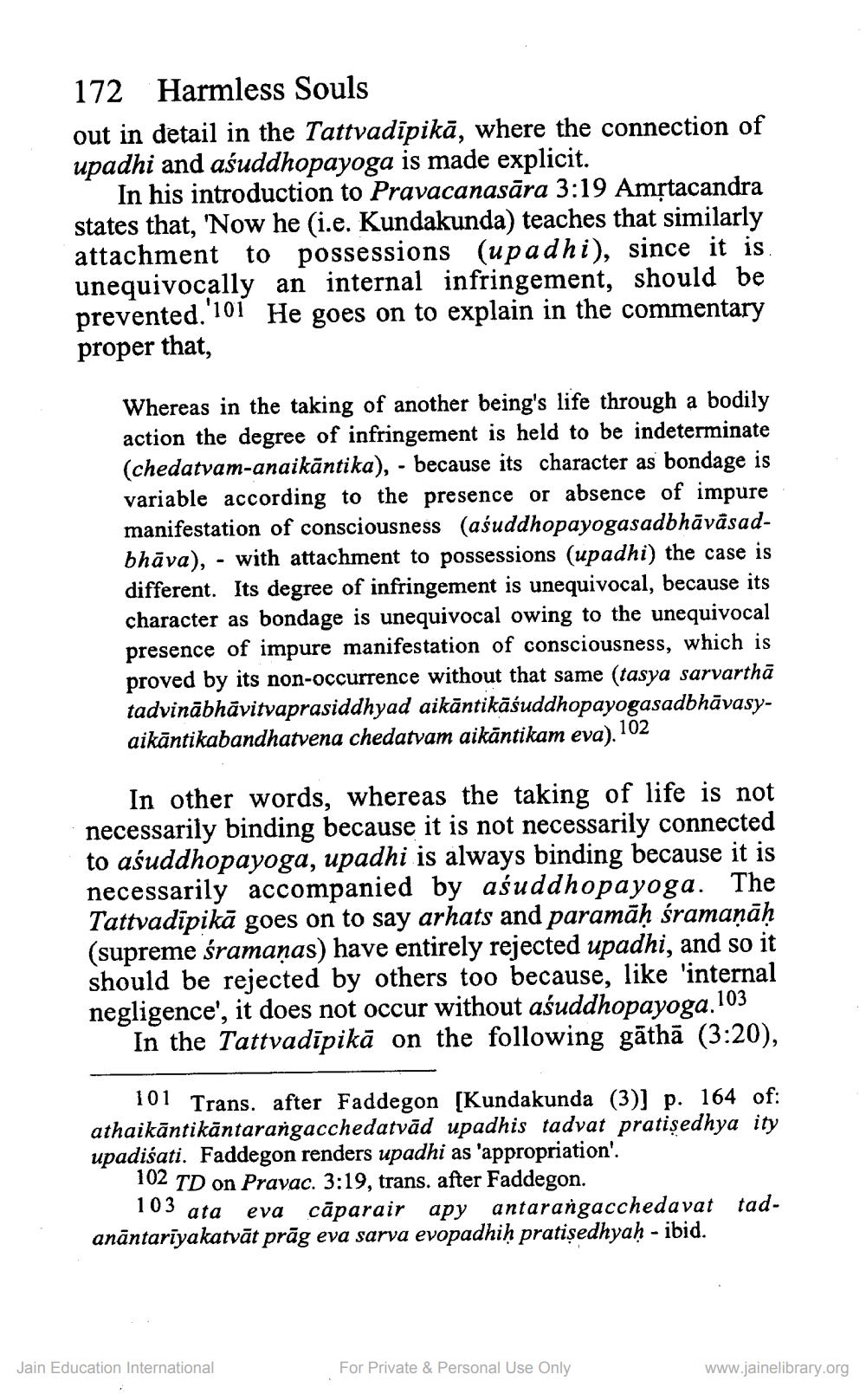________________
172
Harmless Souls
out in detail in the Tattvadīpikā, where the connection of upadhi and aśuddhopayoga is made explicit.
In his introduction to Pravacanasāra 3:19 Amṛtacandra states that, 'Now he (i.e. Kundakunda) teaches that similarly attachment to possessions (upadhi), since it is. unequivocally an internal infringement, should be prevented.'101 He goes on to explain in the commentary proper that,
Whereas in the taking of another being's life through a bodily action the degree of infringement is held to be indeterminate (chedatvam-anaikāntika), - because its character as bondage is variable according to the presence or absence of impure manifestation of consciousness (aśuddhopayogasadbhāvāsadbhāva), with attachment to possessions (upadhi) the case is different. Its degree of infringement is unequivocal, because its character as bondage is unequivocal owing to the unequivocal presence of impure manifestation of consciousness, which is proved by its non-occurrence without that same (tasya sarvartha tadvinābhāvitvaprasiddhyad aikāntikāśuddhopayogasadbhāvasyaikāntikabandhatvena chedatvam aikāntikam eva). 102
-
In other words, whereas the taking of life is not necessarily binding because it is not necessarily connected to aśuddhopayoga, upadhi is always binding because it is necessarily accompanied by aśuddhopayoga. The Tattvadipikā goes on to say arhats and paramaḥ śramaṇāḥ (supreme śramaņas) have entirely rejected upadhi, and so it should be rejected by others too because, like 'internal negligence', it does not occur without aśuddhopayoga.103
In the Tattvadīpikā on the following gathā (3:20),
101 Trans. after Faddegon [Kundakunda (3)] p. 164 of: athaikāntikāntarangacchedatvad upadhis tadvat pratiṣedhya ity upadiśati. Faddegon renders upadhi as 'appropriation'.
102 TD on Pravac. 3:19, trans. after Faddegon.
103 ata eva caparair apy antarangacchedavat tadanāntarīyakatvāt prāg eva sarva evopadhiḥ pratiṣedhyaḥ - ibid.
Jain Education International
For Private & Personal Use Only
www.jainelibrary.org




